Liverpool job: Challenges the new manager must face head on
- Published
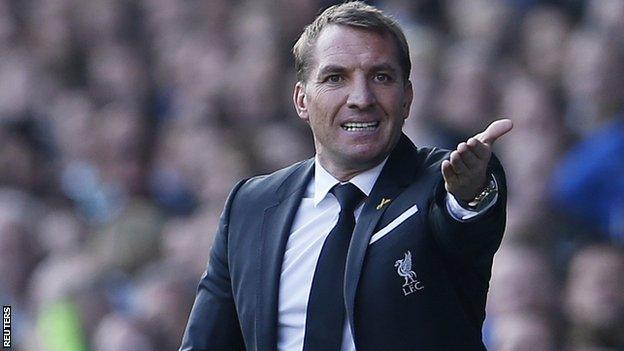
Brendan Rodgers was in charge of Liverpool for three and a half years and led them to a second-placed league finish
Liverpool fully expect to have a new manager in place by the time they play their next match at Tottenham after Brendan Rodgers was sacked on Sunday night.
Owners Fenway Sports Group hope this will be 48-year-old former Borussia Dortmund coach Jurgen Klopp, who is their top choice ahead of three-time Champions League winner Carlo Ancelotti.
So what will be on the new man's 'to do' list once he takes his seat behind the desk at Liverpool's Melwood training headquarters?
Control the committee
When Brendan Rodgers was appointed in summer 2012, a now departed member of Liverpool's operational staff described the structure the club would use to shape their transfer policy as a "committee".
The phrase 'transfer committee' has now become a byword used by fans and critics alike to bash Liverpool's hierarchy over the head and pick holes in a strategy that has overseen almost £300m on 23 permanent signings in that time - resulting in no trophies and a sacked manager.
More on Liverpool: |
|---|
During his time at Anfield, it is believed Rodgers was denied first choices such as Swansea City's Ashley Williams, who was with him at the Liberty Stadium, and Chelsea defender Ryan Bertrand because of the workings of the committee.
And of his latter deals, it has been widely touted that Roberto Firmino, a £29m buy from Hoffenheim, was more of a committee signing than one fully endorsed by the manager as a player at the top of his approved list.
It is hard to imagine someone as forceful as Klopp being pushed into a similar corner.
What the new man must do is establish his total control over this group and wipe out the grey areas that accompany this approach. The committee's existence has led to questions about the accountability of those inside the group for signings.
Before the events of Sunday night, the committee consisted of Rodgers, scouts Dave Fallows and Barry Hunter, the man in charge of analysis Michael Edwards, FSG's Anfield representative Mike Gordon and chief executive Ian Ayre.
The new man will work within this framework but if it is as powerful a personality as Klopp, he should have complete and transparent authority over them. He should get it too given the decidedly mixed track record of their offerings during the Rodgers era.
No grey areas. No questions of accountability. Every acquisition should ultimately be the manager's alone, not decided by statistical analysis or questionable scouting reports.
It must be a priority.
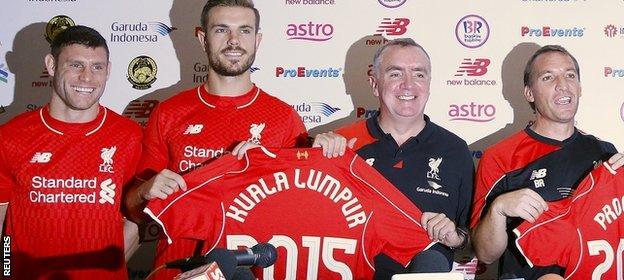
Liverpool CEO Ian Ayre (middle right) is part of the transfer committee
Who's who on the transfer committee?
Mike Gordon
FSG's eyes and ears on Merseyside and the man who made the phone call to Rodgers to tell him it was all over. He is the president of Fenway Sports Group and has the best football knowledge of Liverpool's American hierarchy. He is FSG's second largest shareholder after John W Henry with about 12%. He keeps hold of the purse-strings and has become an increasingly influential, if low profile, figure.
Ian Ayre (chief executive)
He is the man responsible for the day-to-day running of Liverpool and has often been a target for fans' criticism when deals have not been done. He is a lifelong Liverpool fan and the connection between Boston and Anfield. Flew to Chile to complete the £29m signing of Roberto Firmino during the Copa America.
Michael Edwards (director of technical performance)
The most obvious nod to Liverpool owner Henry's admiration for the "Moneyball" ideal - where statistical analysis is used in the search for value in the transfer market. He assesses data and is involved in detailing scouting assignments. Highly respected by FSG and worked previously at Portsmouth and Tottenham.
Dave Fallows (director of scouting)
Liverpool regarded his appointment as a coup when he arrived from Manchester City in 2012. The club's worldwide network of scouts report in to him and he has been instrumental in drawing up the names of candidates who were perceived to fit the manager's needs.
Barry Hunter (chief scout)
The former Northern Ireland defender established his association with Rodgers at Reading. He also had a spell as player-manager of Rushden & Diamonds. Like Fallows he was at City, where he scouted abroad. He acts on recommendations from Liverpool's scouts in the regions and compiles reports.
Top-four target
In his final media briefing as Liverpool manager, Rodgers revealed a place in the top four was "an internal ambition for myself, the coaching staff and the players" but it had never been mentioned to him as a target by the club's owners.
If not, it was presumably an unspoken goal because if FSG wanted to adopt a "suck it and see" approach Rodgers may have survived a little longer this season than he did.
Rodgers was dead man walking - Shearer
It was clear FSG had concerns about Rodgers's ability to return Liverpool to the Champions League, especially after their return to Europe's elite competition was soured by a failure to qualify from a favourable group containing Basel and Ludogorets, as well as the sight of the manager playing a shadow side in the 1-0 defeat at Real Madrid.
This apparent concession in Madrid, with Steven Gerrard, Raheem Sterling, Jordan Henderson and Philippe Coutinho left out of the starting line-up, did Rodgers serious damage in the eyes of many associated with Liverpool, effectively giving up a game in a competition they once regarded as their personal property.
The obvious goal at the start of the season - a perfectly understandable one given the further investment in £32.5m striker Christian Benteke, Firmino at £29m from Hoffenheim and £12.5m England defender Nathaniel Clyne - was a top four place and/or a trophy. Preferably both.
And by sacking Rodgers now, FSG will believe they have given their fourth manager since buying the club in October 2010 the time and opportunity to move Liverpool back into the top four.
The new incumbent will be afforded patience if he does not achieve that goal as he is starting the Liverpool job afresh - but a place in the Champions League has always been in FSG's mind since they walked through the door.
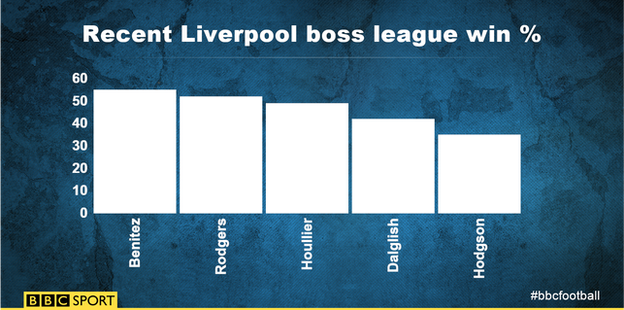
It will be a tough target to reach but not insurmountable. Liverpool may lie a disappointing 10th but they are only three points behind Crystal Palace in fourth place and the Premier League has been characterised by its inconsistency so far this season.
Liverpool's hierarchy will hope the traditional bounce brought about by appointing a new coach will be followed by the building of solid foundations on the new man's fresh ideas that can help them achieve this target.
Reshape Liverpool's squad
One of the biggest (and most obvious factors) in Rodgers's demise was his inability to get what FSG felt was the best out of his Liverpool squad.
Irrespective of the debate around the merits of Liverpool's transfer committee, FSG were convinced this was a squad that should be performing better both in terms of performances and results.
There has been a glaring lack of clarity of thought in recent months. Lucas Leiva, for instance, has gone from being a first-team outcast to an important regular in the space of weeks.
The new manager must bring that back and also correct an imbalanced squad in which there are too many players with a workmanlike versatility but with questions about where their best position is.
Liverpool signed Emre Can as a promising midfield player from Bayer Leverkusen in summer 2014 but he has rarely figured there, often playing at right-back or in a three-man central defence.
Building competition for places was one thing but it was hard to see where expensive buys such as Benteke, Firmino and £25m Adam Lallana would exactly fit when they were all available and Rodgers also had Daniel Sturridge and Danny Ings at his disposal.
What about £11m Belgian striker Divock Origi? Where was his place in the master-plan? He is almost starting to resemble a vanity purchase - raw and based on some distant hope of development.
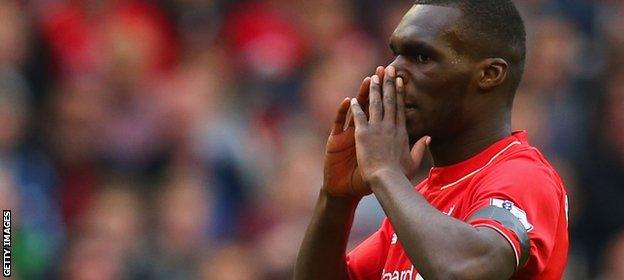
Christian Benteke moved to Liverpool this summer for a reported £32.5m
The signing of Benteke at such expense was championed by Rodgers but seemed a radical departure from his preferred style of attacker, demonstrated by the fact he hastily moved on Andy Carroll after his arrival.
And then we come to tactics. Rodgers wanted to play 4-3-3 but when the pressure was on, it was set aside. In his last game at Everton he started with Can, Martin Skrtel and Mamadou Sakho as a three-man defence.
The new manager must make quick decisions on how he wants to play those who he feels are not fit for purpose. He must then work the markets to bring balance and shape to Liverpool's squad. Will Dejan Lovren, bought for a frankly alarming £20m from Southampton, ever come good?
He will be given finance in January and beyond as FSG have always backed managers with hard cash - but he will need to spend plenty of time sifting the wheat from the chaff and perhaps altering the owners' mindset into moving away from promise and straight to proven quality.
It is a tough task for any manager - but Klopp and Carlo Ancelotti will feel they have the experience and expertise to handle it.
What if it's Klopp?
Archive: Klopp's philosophy
The 48-year-old former Borussia Dortmund coach will bring charisma and expertise to Liverpool and the Premier League.
He has substance to match his personal style, winning the Bundesliga twice by unseating Bayern Munich as well as taking Dortmund to a Champions League final, which they lost to their German rivals at Wembley in May 2013.
Once likening his style of football to "heavy metal", Klopp is a fan of intense, pressing attacking football that will be right up the street of Liverpool's fans.
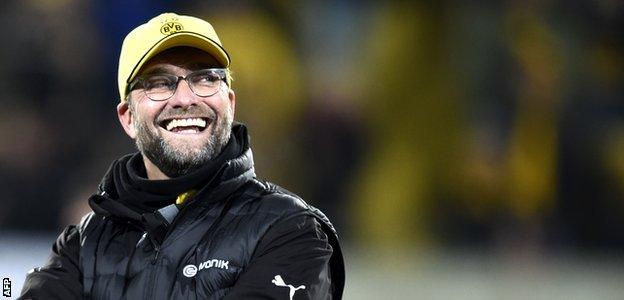
Former Borussia Dortmund coach Jurgen Klopp is the current favourite to take over at Liverpool
His teams do not stand on ceremony behind the door. As he says: "Fighting football is what I like. What we say in German is English football. A rainy day, a heavy pitch, everybody is dirty in the face and they go home and can't play football for the next four weeks. This is Borussia."
Klopp left Dortmund after seven years and a disappointing final campaign last summer - and he may find an even bigger challenge then he faced in the Bundesliga if he accepts the Liverpool job.
In Germany, his main task (one he achieved) was to get past Bayern. If he comes to the Premier League he must find a way past Chelsea, Manchester United, Manchester City and Arsenal.
It is a huge challenge - but one he is ready for after his short sabbatical.
- Published7 October 2015
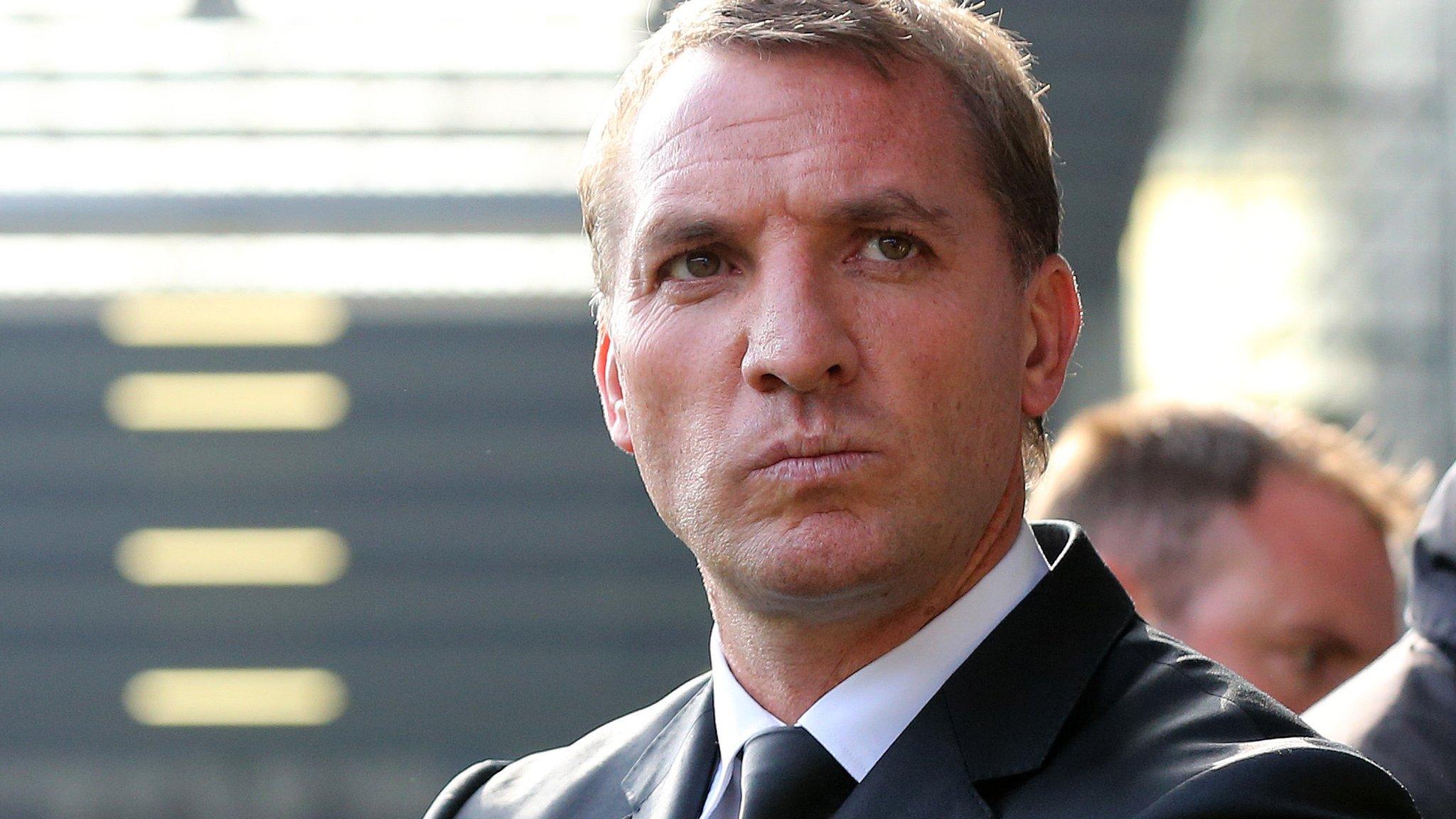
- Published5 October 2015
- Published6 October 2015
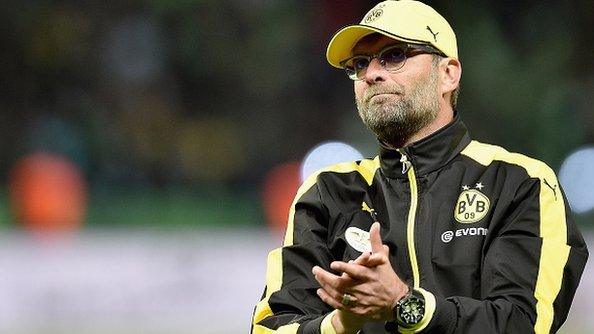
- Published4 October 2015
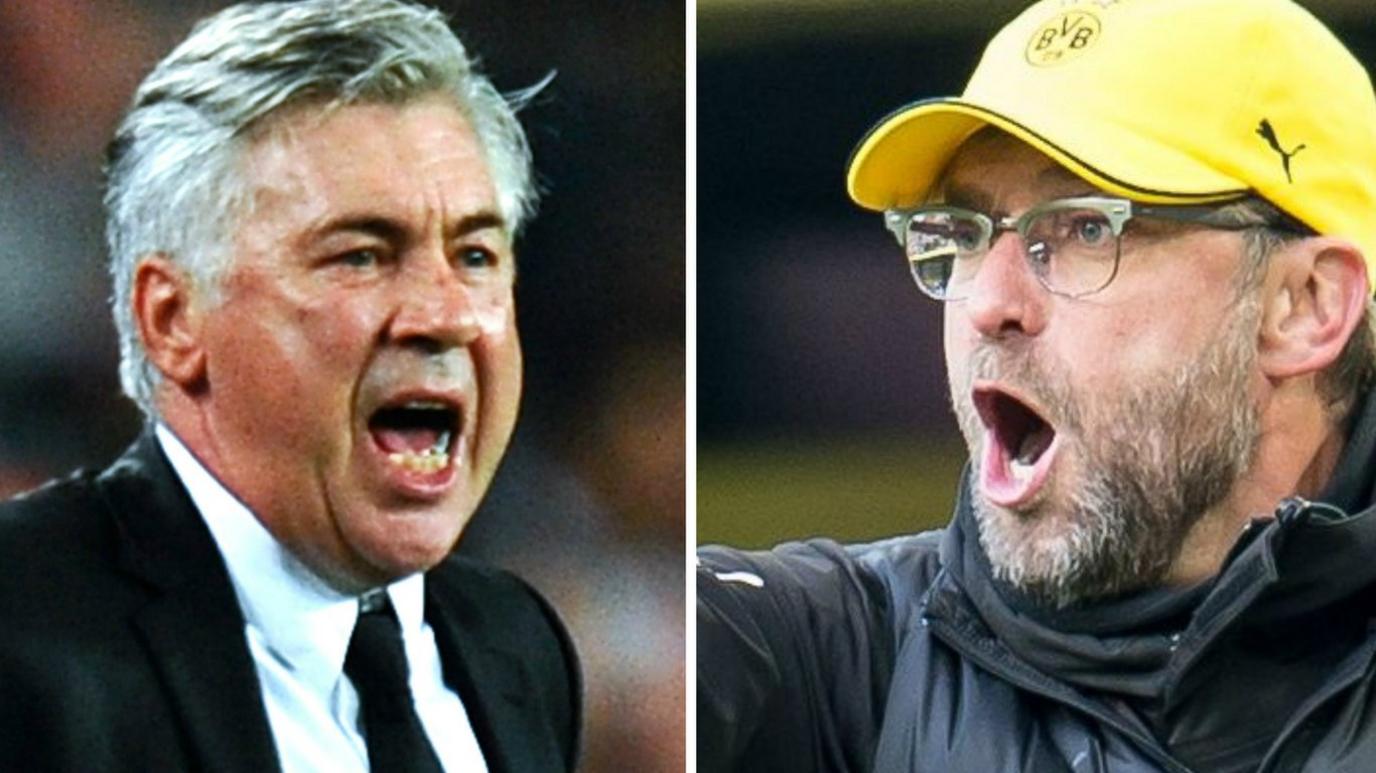
- Published4 October 2015
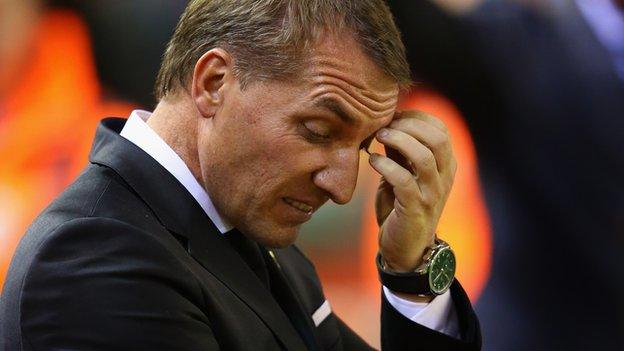
- Published4 October 2015
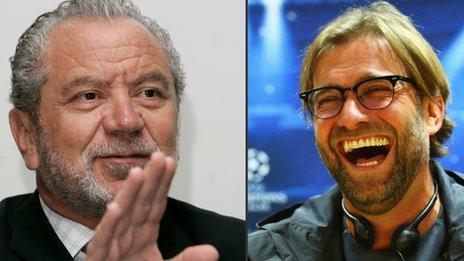
- Published4 October 2015
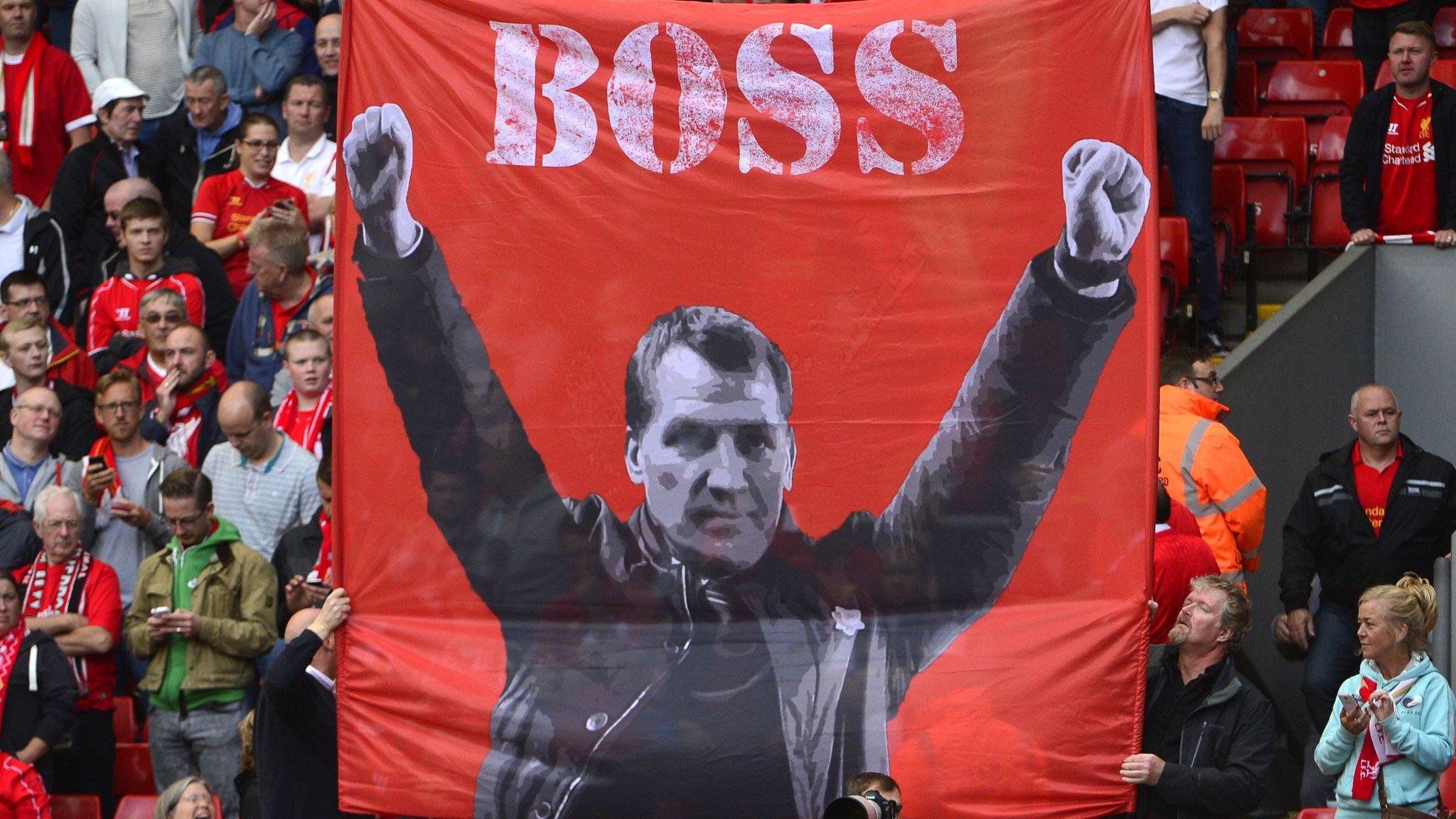
- Published5 October 2015
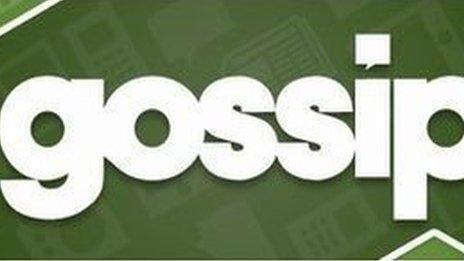
- Published20 June 2016

- Published7 June 2019

- Published2 November 2018
